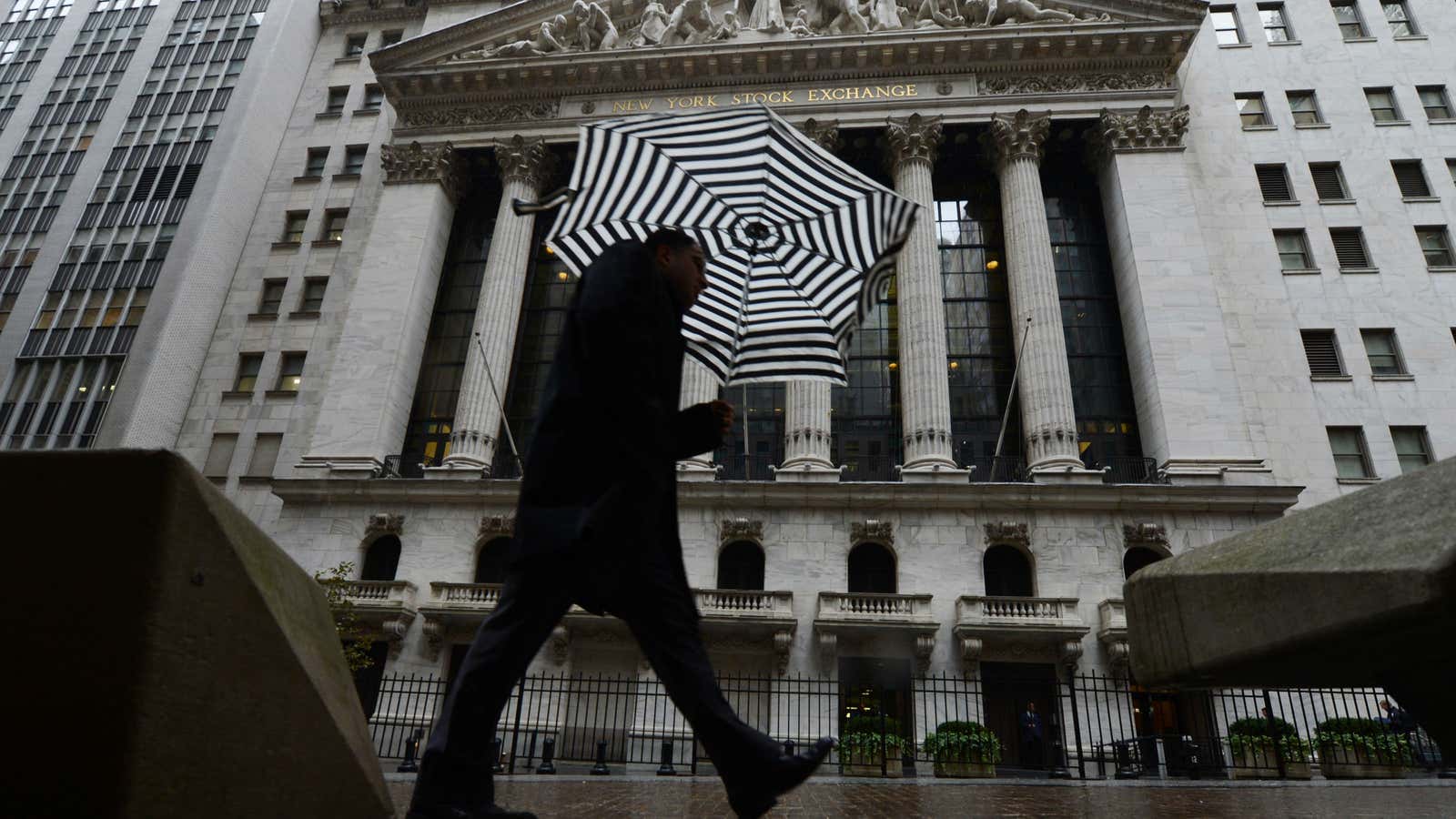Great day for the Democrats and an ugly one for the markets. US stocks suffered their worst decline of the year, with the S&P 500 stock index tumbling 2.4%. All 10 industrial sectors that comprise the S&P were in negative territory while investors ran to the safety of US government bonds and the almighty greenback.
So what’s going on here? Here are a few factors that played a role.
Democratic victories are freaking out people who invested in some industries. Among the 10 main S&P “sectors,” the worst performers of the day were the financial and energy sectors. As we mentioned before, a resurgent Obama administration may increase the odds that regulatory pushes like the Volcker Rule end up being stricter than expected. That could hit profits.
Likewise, President Obama cited tax cuts for oil companies as a potential source of government revenues. “I will not let oil companies write this country’s energy plan or endanger our coastlines or collect another $4 billion in corporate welfare from our taxpayers,” the president has said.
Coal stocks also had a rough go of it. And health care stocks, which might get hurt by government efforts to rein in spending on care, got hit, as well.
The market is pricing in economic weakness tied to the fiscal cliff. Perhaps the best way to get a sense of that is to look at the bond market. (Relax. It doesn’t hurt. The only thing you have to know is that when bond prices rise, yields fall, and vice versa. And also that bonds are investments that tend to do a bit better during times of economic weakness or outright recession.)
So yields on the all-important US 10-year Treasury note made a sharp move lower, falling 0.10 percentage points to around 1.65%, according to FactSet. That means investors were buying bonds, either as a safe place to hide, or because they’re betting on the US economy weakening. At RBC Capital Markets, analysts don’t think yields will fall much further. “With the makeup of government unchanged following the US elections, the risk that we have at least some fiscal restraint in early 2013 is almost certain,” RBC analysts wrote. “While this reality will probably usher in near-term economic weakness, we will likely need to see European stress rise in order for 10s to shift back into the lower segment of the range.”
Apple continues to crap out. The Cupertino, Calif., tech behemoth had a worse day than the market as a whole, tumbling 3.8%. And in fact, Apple has officially entered bear market territory. As we’ve explained before, given that it has the world’s largest market capitalization, Apple throws a lot of weight around in the S&P 500, which is weighted by market value. You can’t blame the stock market drop on Apple alone, but it contributed.
